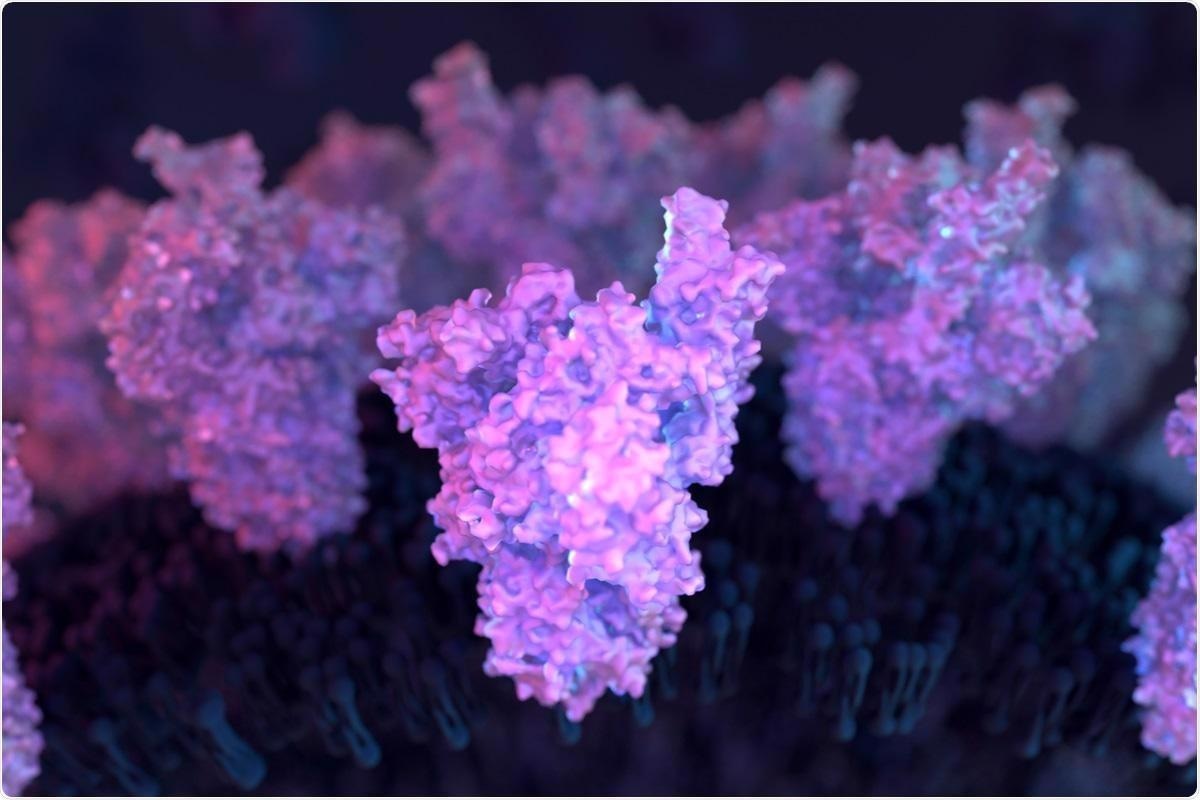Myocarditis has been reported to be a rare adverse event associated with severe acute respiratory syndrome coronavirus 2 (SARS‑CoV‑2) messenger RNA (mRNA) vaccination. However, the mechanism for its development in relation to vaccination is not yet understood.

Study: Lack of evidence of significant homology of SARS-CoV-2 spike sequences to myocarditis-associated antigens. Image Credit: Design_Cells / Shutterstock.com
Background
Since its emergence in late December 2019, the COVID-19 pandemic has been the primary cause of widespread morbidity and mortality worldwide. Dry cough, sore throat, fever, and loss of smell and taste are the typical symptoms exhibited during the COVID-19 illness. However, rarely other complications, including heart injury, have also been reported.
Similarly, rare incidences of myocarditis and pericarditis have been reported within a week following the administration of mRNA SARS-CoV-2 vaccine. Other vector-based vaccines have also been reported to be associated with a rare but different class of adverse event, blood clots.
The etiology behind these rare adverse effects is unknown. As the team suggests, one possible mechanism is the triggering of autoimmune reactions, based on cross-reactivity between the SARS-CoV-2 spike protein encoded by the mRNA vaccines and auto-antigens associated with myocarditis.
Both SARS-CoV-2 mRNA vaccines currently authorized for administration encode the SARS-CoV-2 spike protein as the vaccine immunogen. Therefore, the team investigated whether any peptide sequences in the spike protein could lead to a cross-reactive immune response to autoantigens associated with autoimmune myocarditis.
What did the researchers do?
The Immune Epitope Database (IEDB) was searched for a list of myocarditis-associated antigens that revealed 66 human epitopes contained in eight antigens. Further by probing the autoimmune myocarditis literature, twenty-three additional antigens with known associations with myocarditis and four antigens with potential associations with myocarditis were found, taking the tally of myocarditis-associated antigens to 35.
As a control for comparison with the myocarditis-associated antigens, 1,000 sets of 35 human proteins were randomly selected from the human proteome.
To evaluate cross-reactivity at the level of either CD8+ or CD4+ T cells, the team considered 9-mer and 15-mer epitopes, as these epitope sizes are associated with CD8+ and CD4+ T cell epitopes, respectively.
Using Python, the 1,273 amino acid long spike S protein sequence was broken into all possible 9-mers, generating 1,265 9-mers that overlapped by eight amino acids each, and all possible 15-mers, generating 1,259 15-mers overlapped by 14 amino acids each. The team generated shuffled sequences of all peptides using the Python shuffle function as a control.
Both the spike peptide and shuffled peptide sets were searched for different levels of sequence identity in the myocarditis-associated antigens and the 1,000 control sets to identify potentially relevant hits for CD4+ and CD8+ T cell immune responses.
Further, to evaluate cross-reactivity at the level of B cells derived from structural 3-D epitope cross-reactivity, the team probed into the structural similarity between SARS-CoV-2 spike protein and myocarditis-associated antigens. The analysis was also repeated for the randomized human control set proteins.
What did the researchers find?
Regarding the probe on potential cross-reactivity due to cell-mediated CD4+ immune cells, the team compared 15-mer spike peptides to a set of 35 cardiac proteins associated with autoimmune myocarditis and found no peptides matching between the two groups at a sequence identity of 60% or more. Relaxing the sequence identity to 53% resulted in few matches. However, when compared to control matches from shuffled peptides, the matches were statistically non-significant.
Similarly, on testing the cross-reactivity due to cell-mediated CD8+ immune cells through the sequence homology of 9-mer spike peptides with 35 myocarditis-associated proteins, the team found three spike peptides and one shuffled peptide that matched with cardiac proteins at 78% or more homology (two substitutions), which, however, was a non-significant enrichment (p= 0.63). Relaxing the homology to 67% resulted in a much greater number of homologous peptides from spike (n=77) as well as control shuffled peptides (n=55), which again was not a significant enrichment (p=0.06).
Concerning the potential cross-reactivity from the B-cells, four 3-D substructures were observed to have significant scores on comparing the SARS-CoV-2 protein PDB (Protein Data Bank) files with those of myocarditis-associated antigens. However, on mapping these substructures onto the 3-D spike protein structure and calculating solvent accessibility, the team observed that these residues had a low solvent-accessible surface area, making them improbable epitope targets of humoral cross-reactivity.
Conclusions
The findings do not support the hypothesis that myocarditis adverse event resulting after COVID-19 mRNA vaccination is due to cross-reactive reactions of the adaptive immune system.
The team further supports their findings by presenting the fact that the usual median onset time for myocarditis incidents occurring post-vaccination is 3.5 days. For those hospitalized, the median discharge time is two days inferring that the conditions developed quickly and showed a rapid response to treatment. On the contrary, autoimmune diseases often exhibit a chronic course over time.
“Without much evidence of an adaptive cross-reactive response occurring in these individuals, the incidents of post-vaccination myocarditis are unlikely to be T-cell or B-cell mediated and more consistent with an innate response,” the team highlights.
At the same time, the team does not exclude the possibility of cross-reactive responses in some individuals post-mRNA SARS-CoV-2 vaccination and advises the need for additional research efforts to elucidate the mechanisms involved.